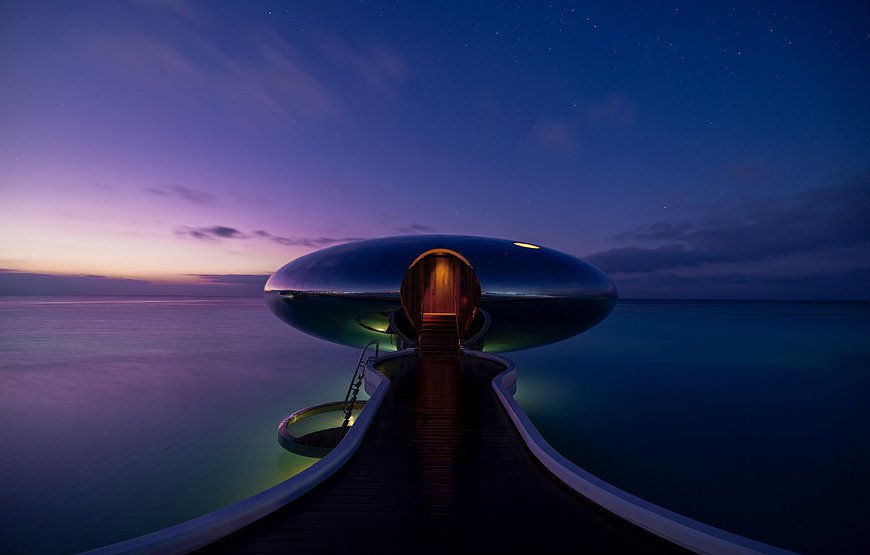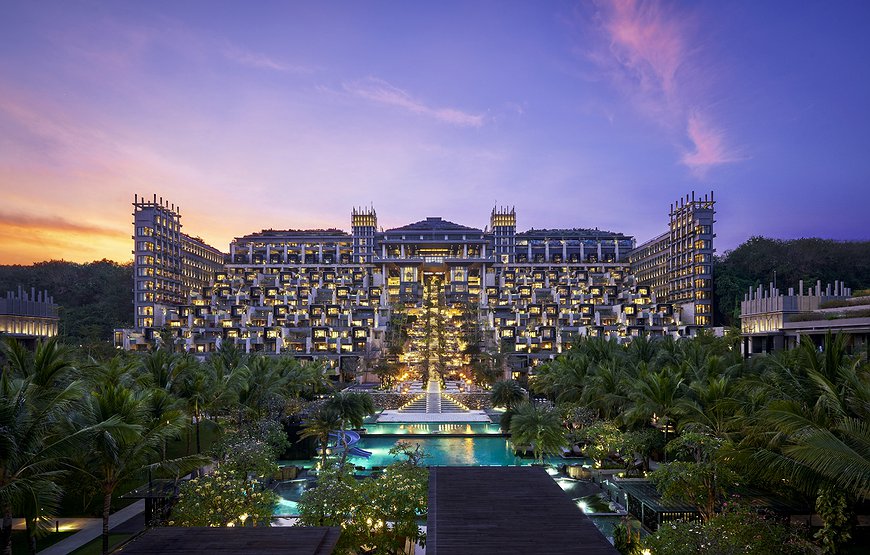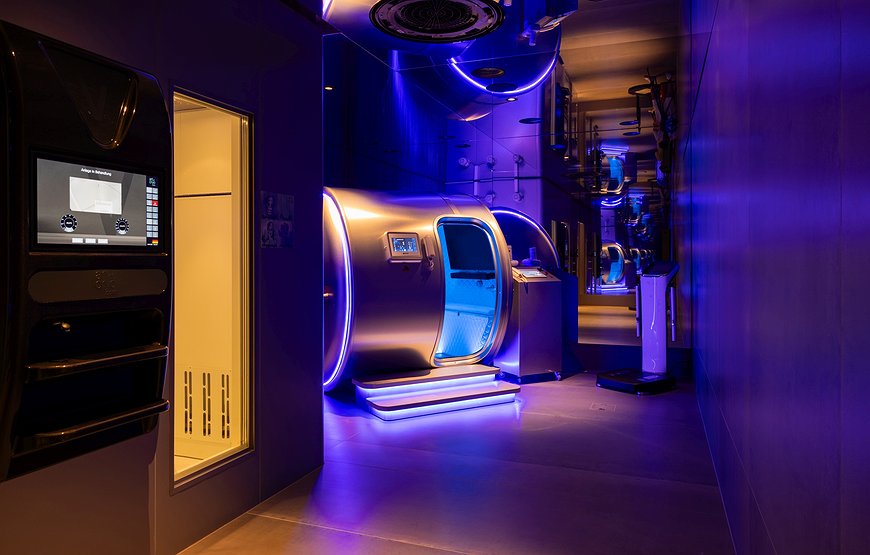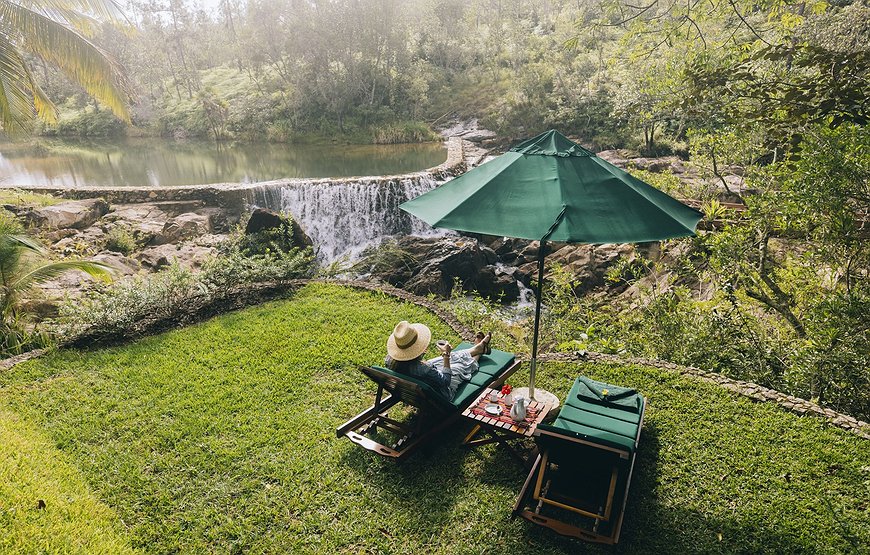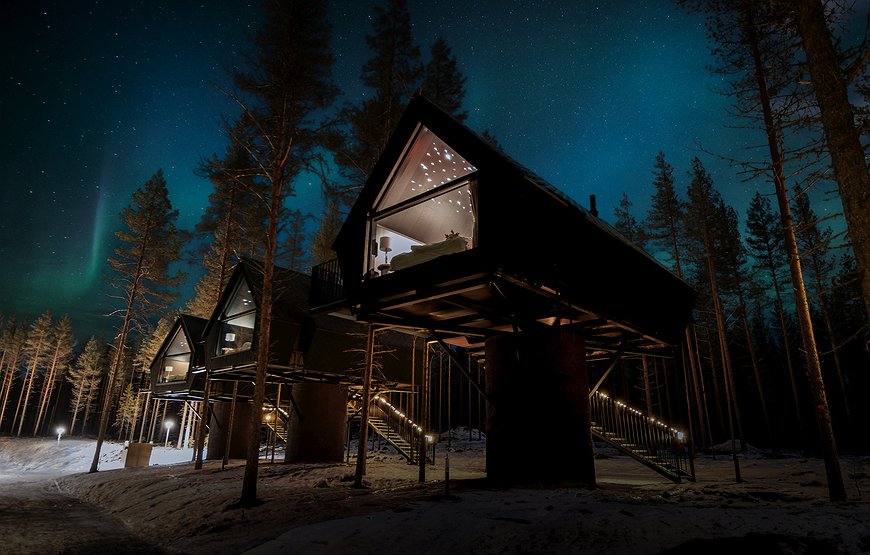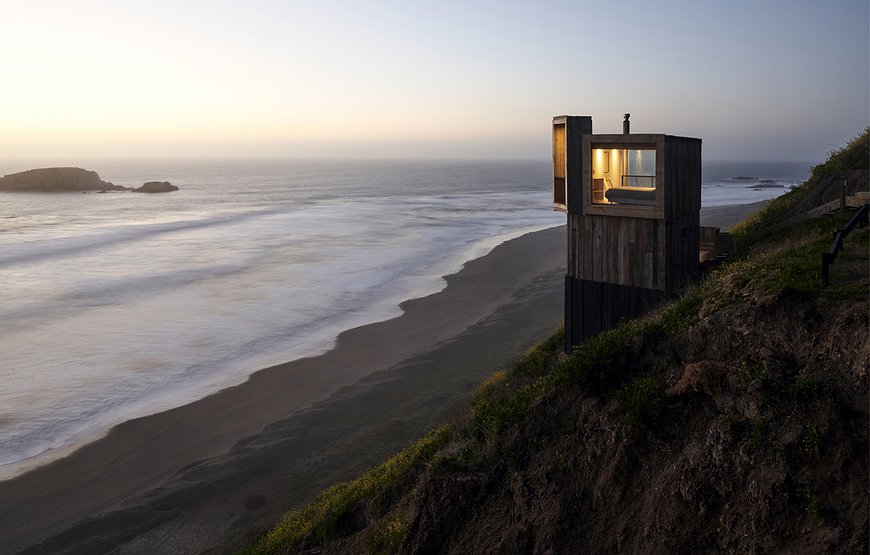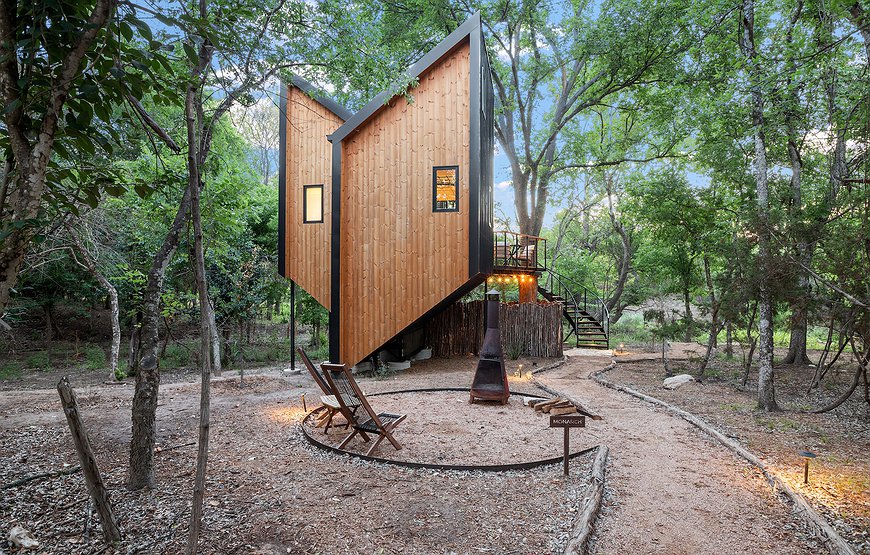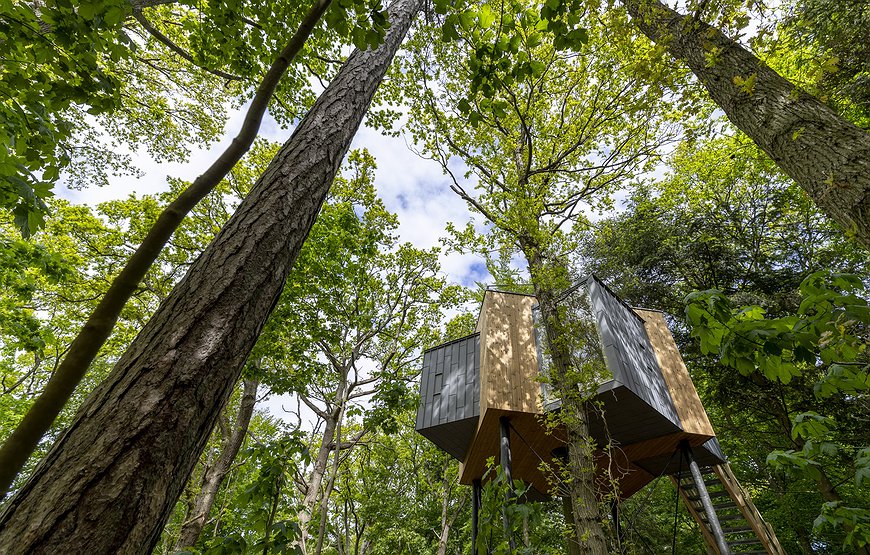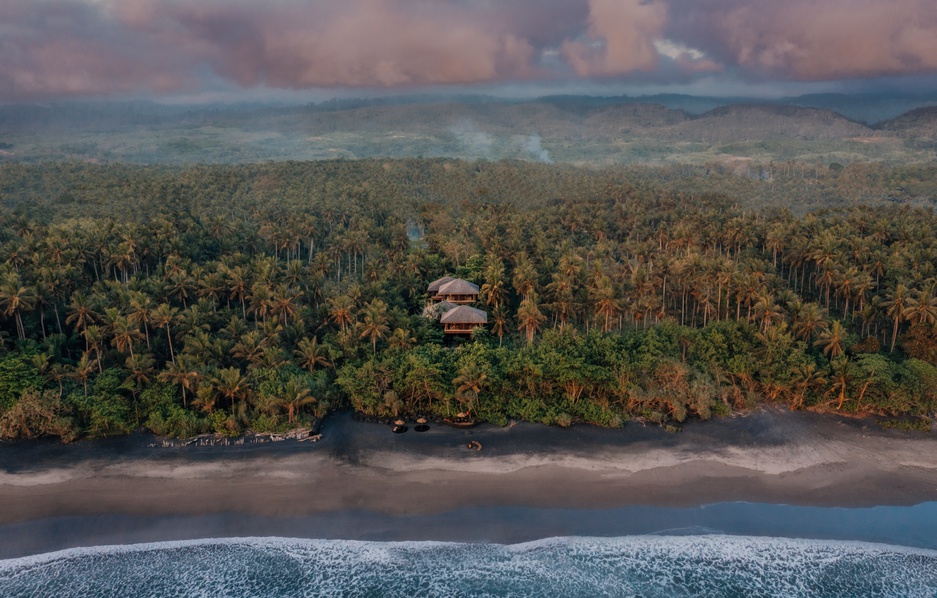
The first clue that Lost Lindenberg isn't your typical Balinese retreat comes at the entrance - a playful art installation by German artist Tobias Rehberger that deliberately contrasts with the serene world beyond. Step through the hidden door, and suddenly you're Alice tumbling down a very zen rabbit hole.
What follows is a narrow path through dense jungle, past a shrine where staff offer traditional blessings, around a moss-covered boulder that doubles as a fountain, and through a forest of ferns and towering palms. It's theatrical in the best possible way - a deliberate shock-and-awe transition from the chaotic neon entrance to the serene world beyond. The resort itself looks like something a visionary architect might dream up after reading too much Swiss Family Robinson.
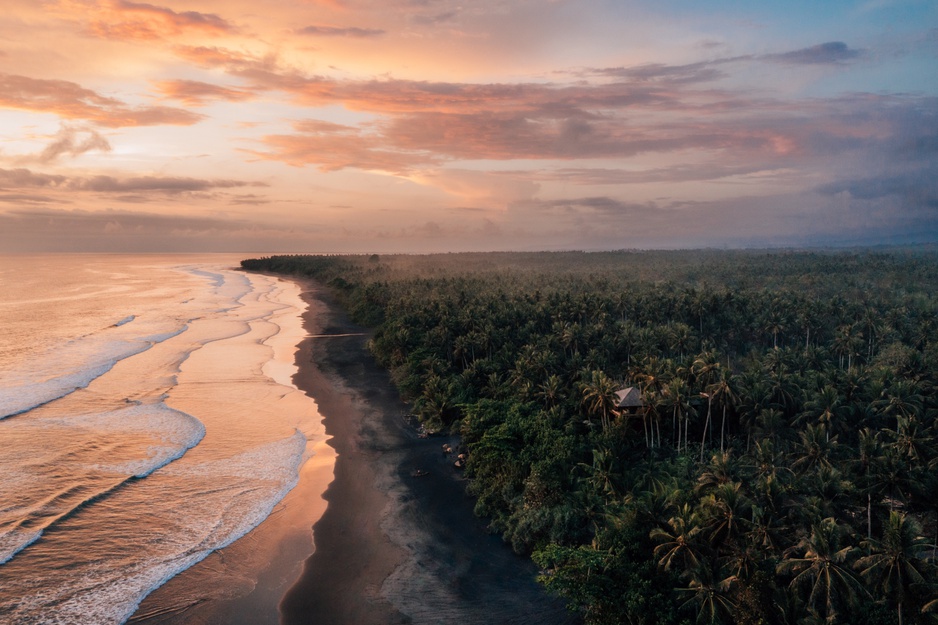
Vegan vibes and jungle highs: Lost Lindenberg is a plant-powered paradise - Photo by Jack Johns
Four wooden towers rise from the jungle floor like oversized treehouses, connected by elevated walkways that sway gently in the breeze. Each structure houses two rooms positioned at canopy level, where floor-to-ceiling windows offer unobstructed views of coconut palms and the Indian Ocean beyond.
The anti-Ubud
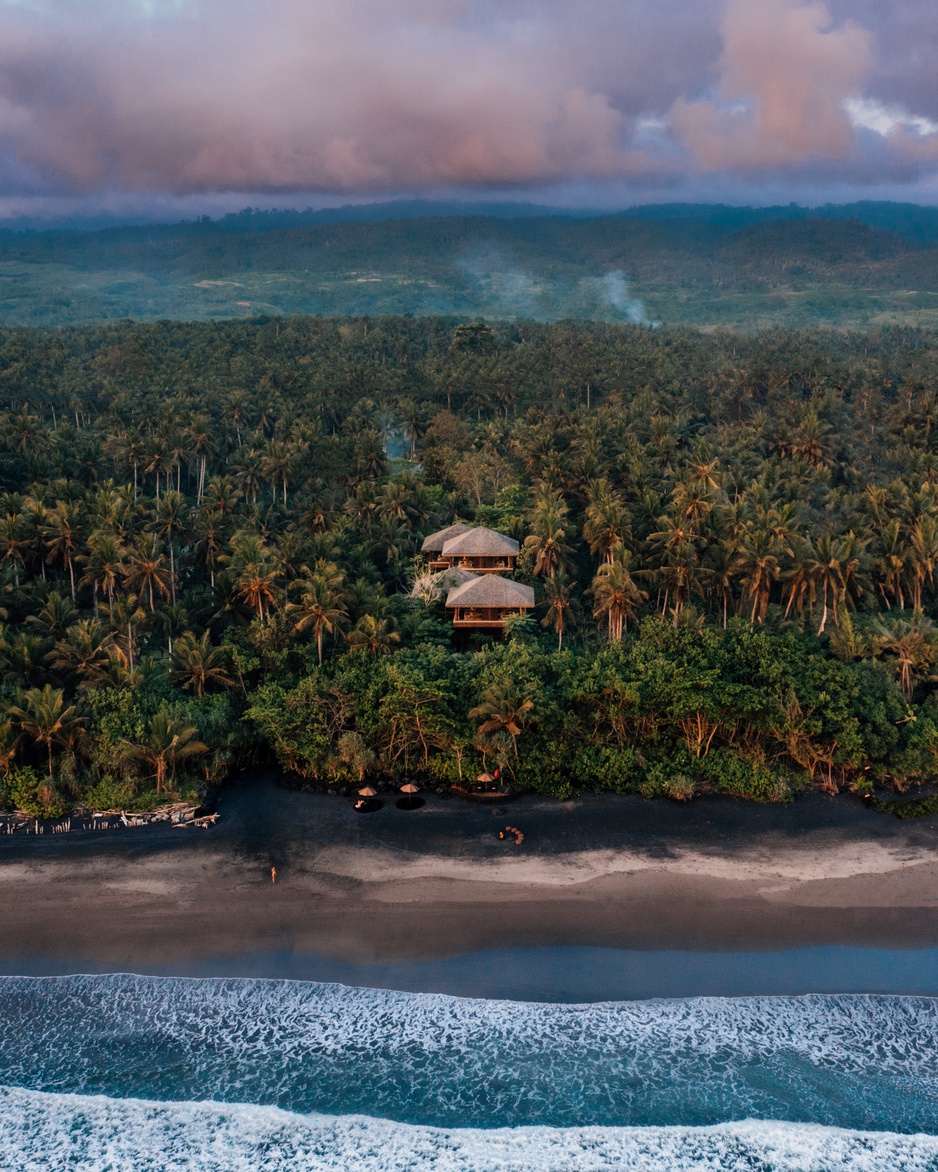
Photo by Jack Johns
Lost Lindenberg's unofficial motto is "I mean, it's not Ubud," and that's precisely the point. There are no wellness retreats promising life transformation, no yoga studios filled with spiritual seekers, no cafes serving $15 smoothie bowls. Instead, you get something rarer in modern Bali: genuine peace and quiet.
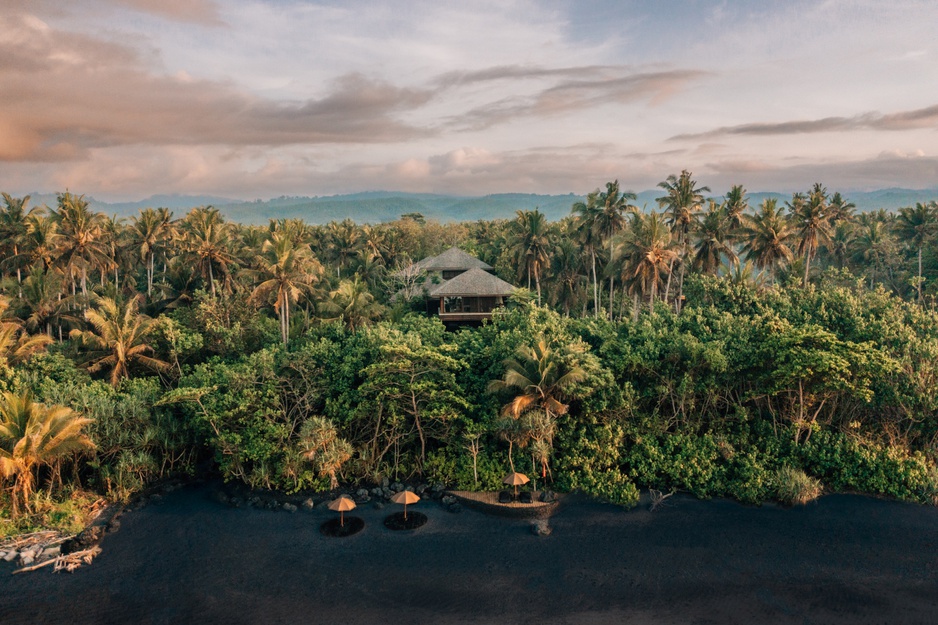
Photo by Jack Johns
The resort's communal philosophy – borrowed from its sister properties in Frankfurt - encourages you to actually talk to other people rather than hide behind screens. Evening bonfires on the beach become impromptu storytelling sessions, while lazy afternoons by the pool often turn into conversations with fellow travelers from around the world.
Sustainable by design
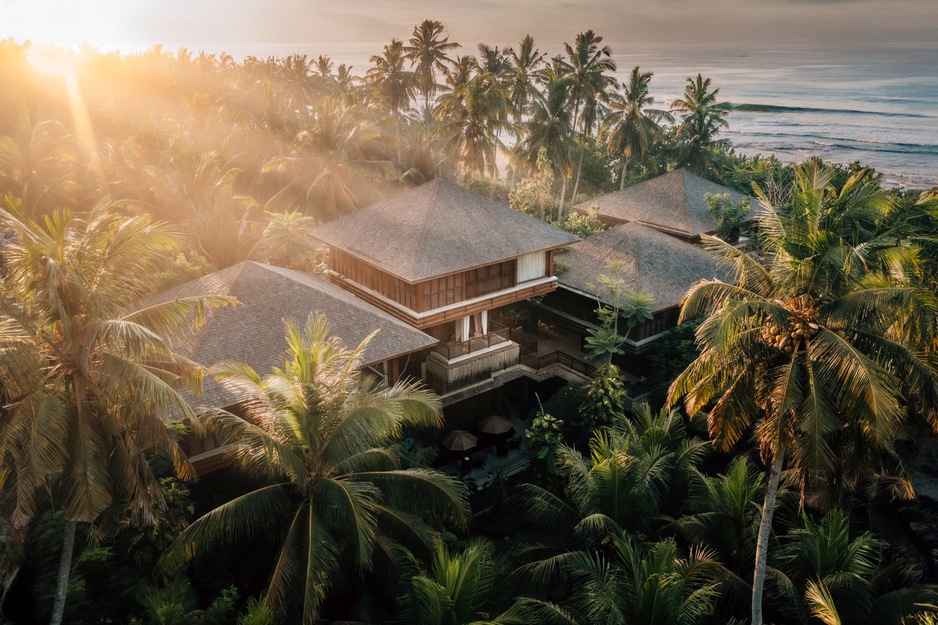
Photo by Jack Johns
Lost Lindenberg takes its environmental responsibilities seriously without making you feel guilty about your carbon footprint. Solar panels power the property, rainwater is collected and reused, and all cleaning products are biodegradable. The resort also supports local initiatives, from dog sterilization programs to educational projects for young surfers in the area.
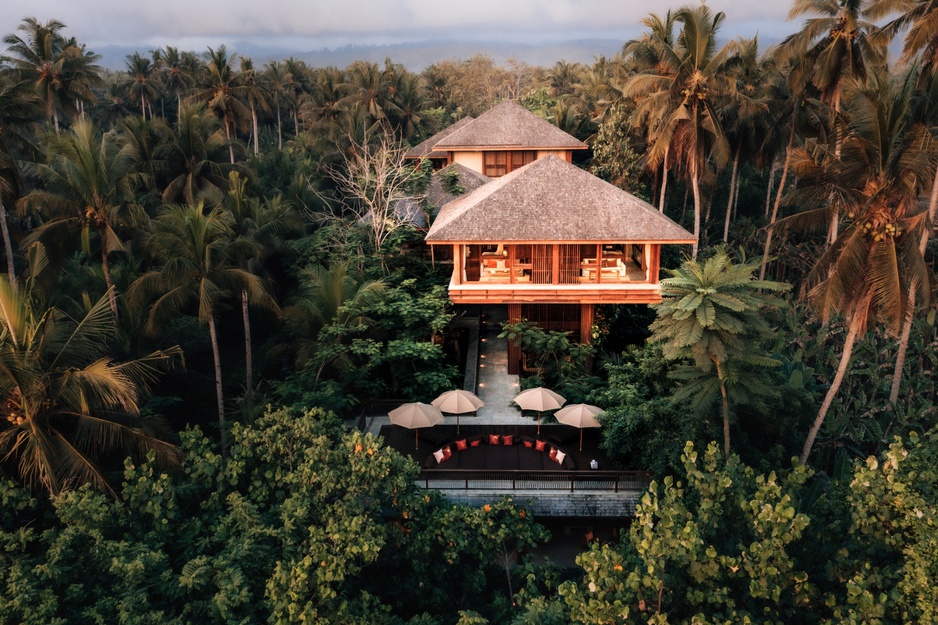
Photo by Jack Johns
The location itself is part of the sustainability story. Pekutatan remains blissfully untouched by mass tourism, a sleepy backwater where rice paddies meet the sea and the biggest excitement is watching the sunset paint the sky in shades of orange and pink. It's a three-hour drive from Denpasar airport (traffic depending), but that distance feels like a feature, not a bug.
High-rise hideaway
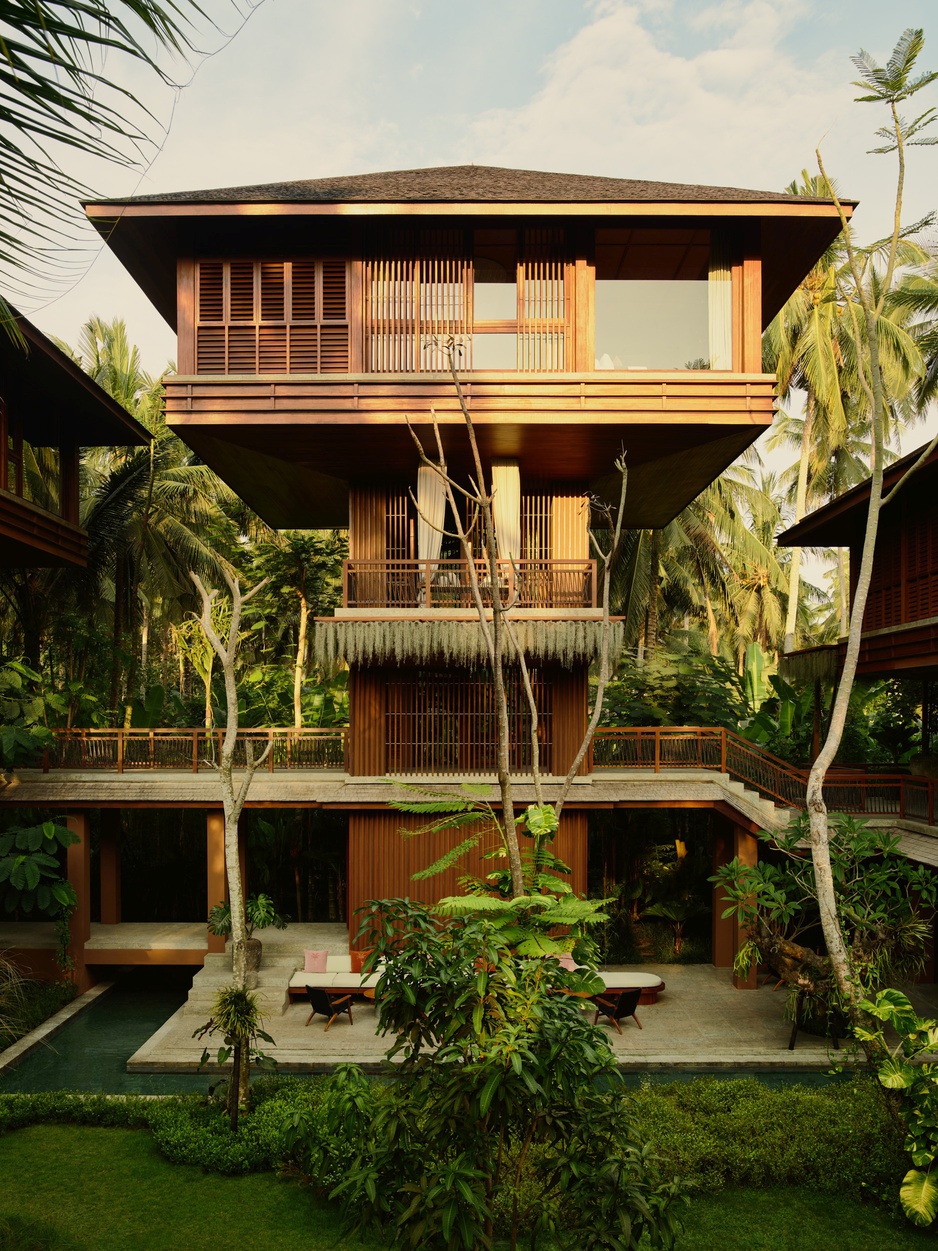
Photo by Robert Rieger
Getting to your room requires climbing a spiral staircase - a small price to pay for the privilege of sleeping among the treetops. Once inside, the aesthetic is refreshingly restrained. Think warm wood, cooling stone floors, and bathrooms with slatted shutters that blur the line between indoors and out. There's no TV, no minibar, no kettle - just you, the jungle, and the distant sound of waves.
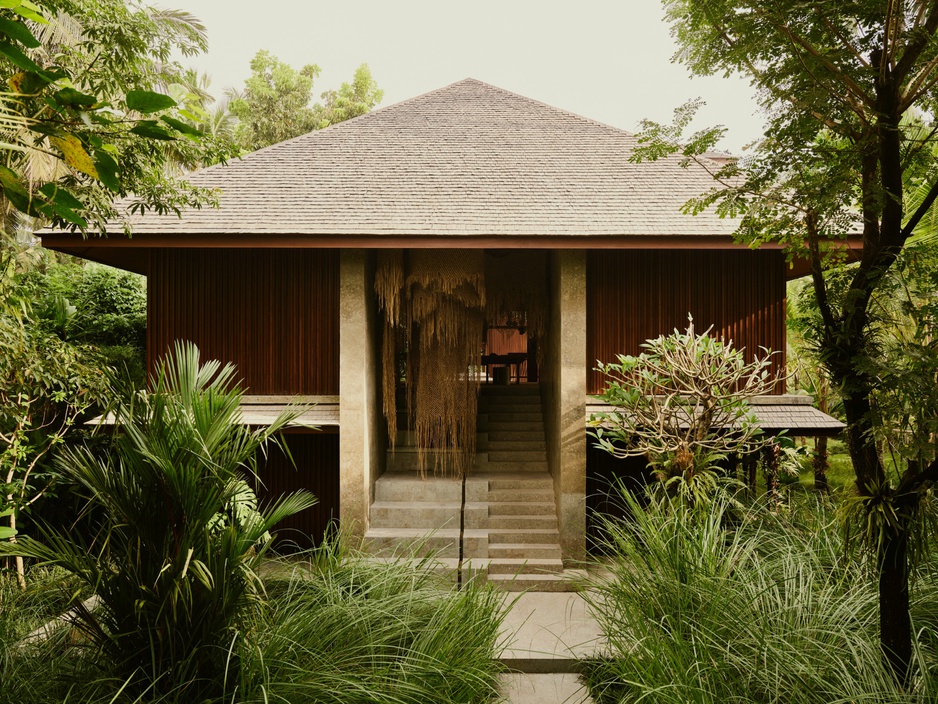
Photo by Robert Rieger
The communal spaces feel like stages set for human connection. A turquoise pool sits nestled between the towers, surrounded by hanging chairs draped in soft fabrics. The bar and lounge area offers afternoon tea and evening cocktails, while the restaurant centers around a single, impossibly long wooden table where all meals are served family-style.
Vegan paradise
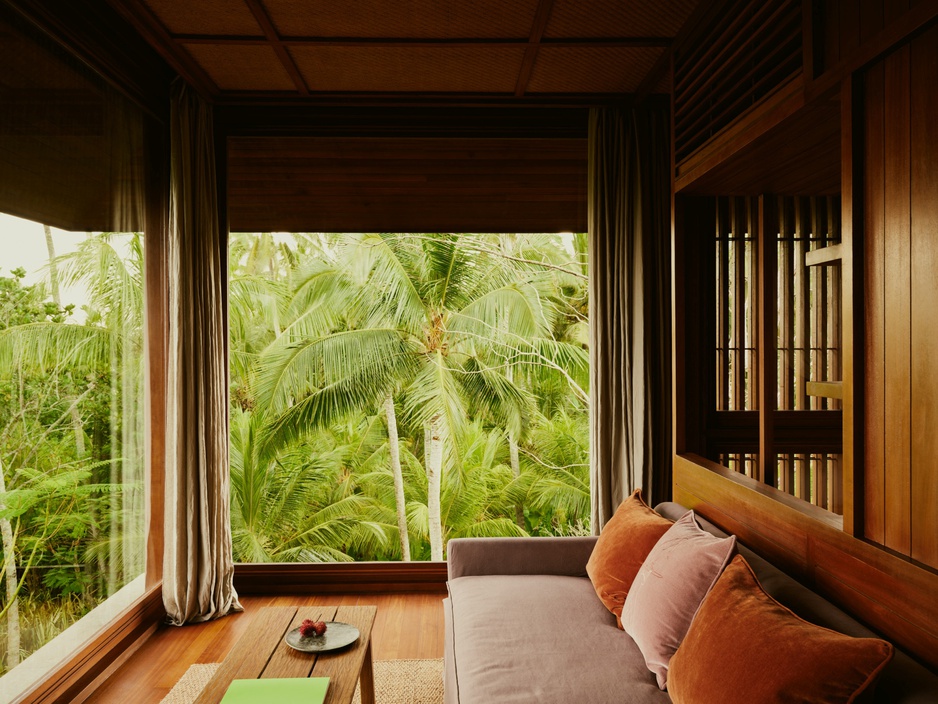
Photo by Robert Rieger
Here's where Lost Lindenberg makes its boldest statement: everything that comes out of the kitchen is completely plant-based. No meat, no fish, no dairy - just Indonesian flavors reimagined through a vegan lens. Before you panic, know that the kitchen team has serious skills. Their take on regional dishes from across Indonesia - think mushroom satays, jackfruit baos, and vegetables steamed in banana leaves - will make you forget you're not eating meat.
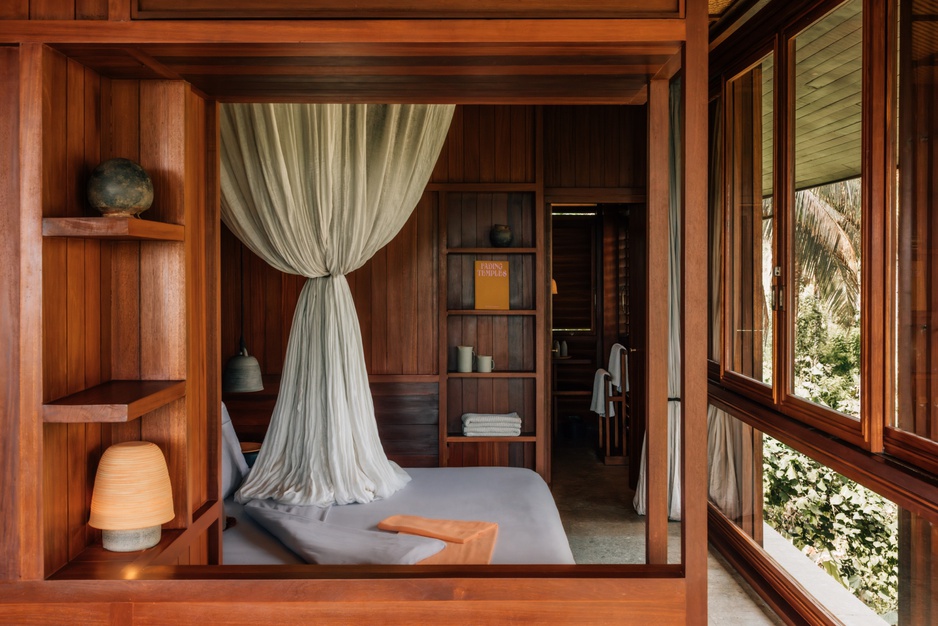
Photo by Jack Johns
The rooms feel like sophisticated cabins, with custom-made furniture and ceramics that complement the natural materials. Soft linens in muted tones create a cocoon-like atmosphere, while the panoramic windows frame the jungle canopy like living artwork. The two ocean-facing suites offer direct sea views, but even the jungle-facing rooms provide a sense of floating among the palm fronds.
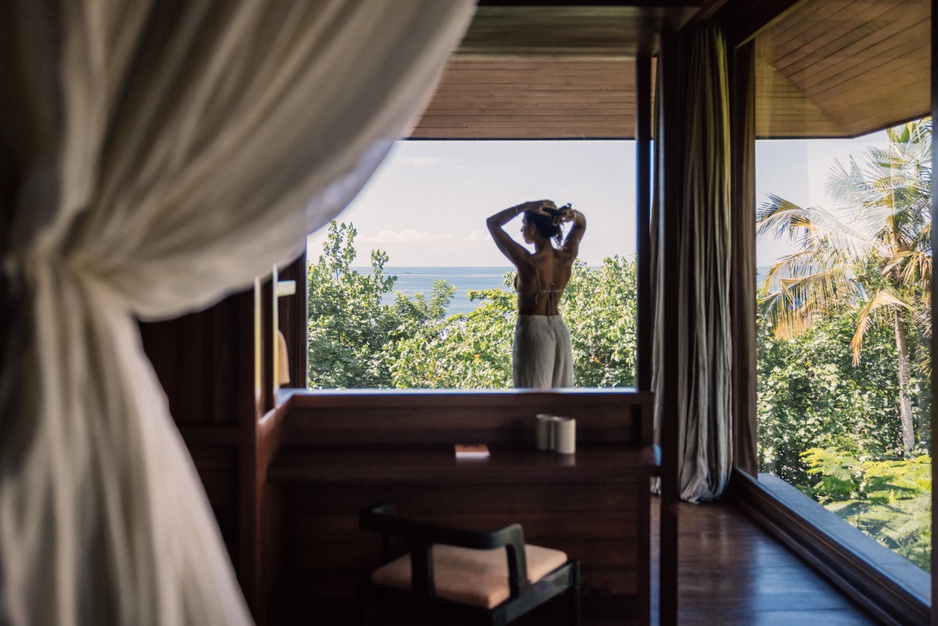
Photo by Jack Johns
There's no TV, no minibar, no kettle - just you, the jungle, and the distant sound of waves. The absence of typical hotel amenities feels intentional rather than lacking, encouraging you to step outside your timber cocoons and engage with the communal spaces below.
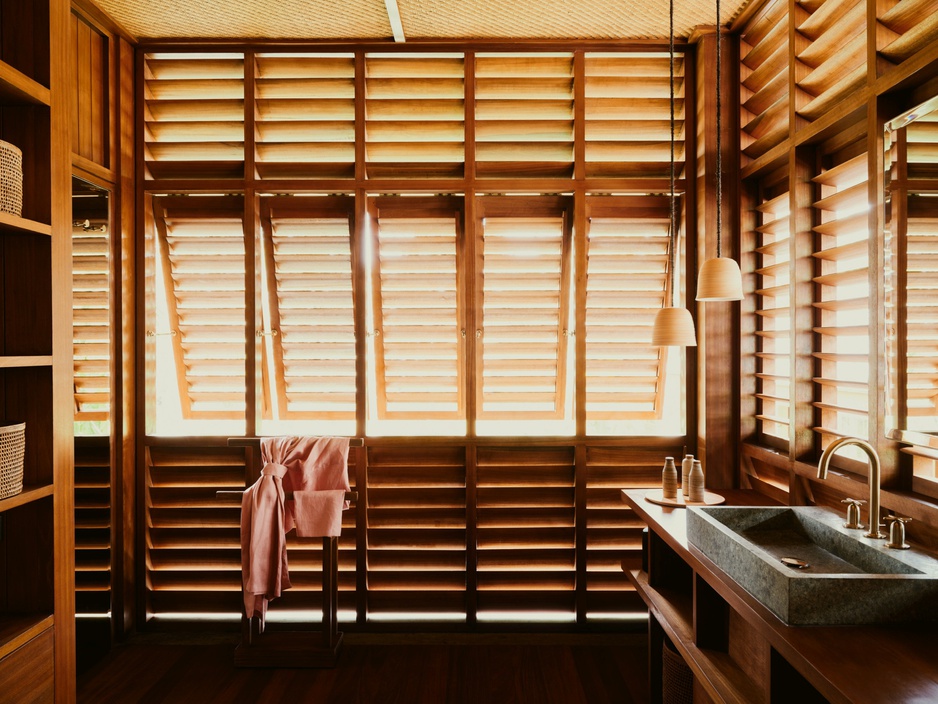
Photo by Robert Rieger
Each bathroom is practically open-air, with wooden louvered walls that let sea breezes flow through while maintaining privacy. It's an ingenious design that makes you feel connected to the elements without sacrificing comfort.
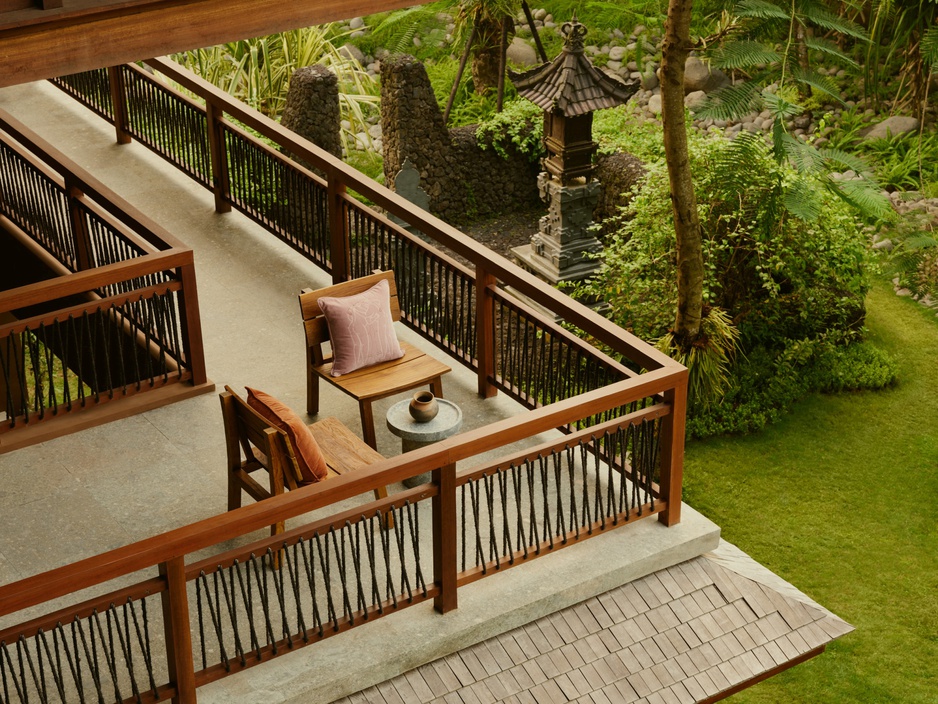
Photo by Robert Rieger
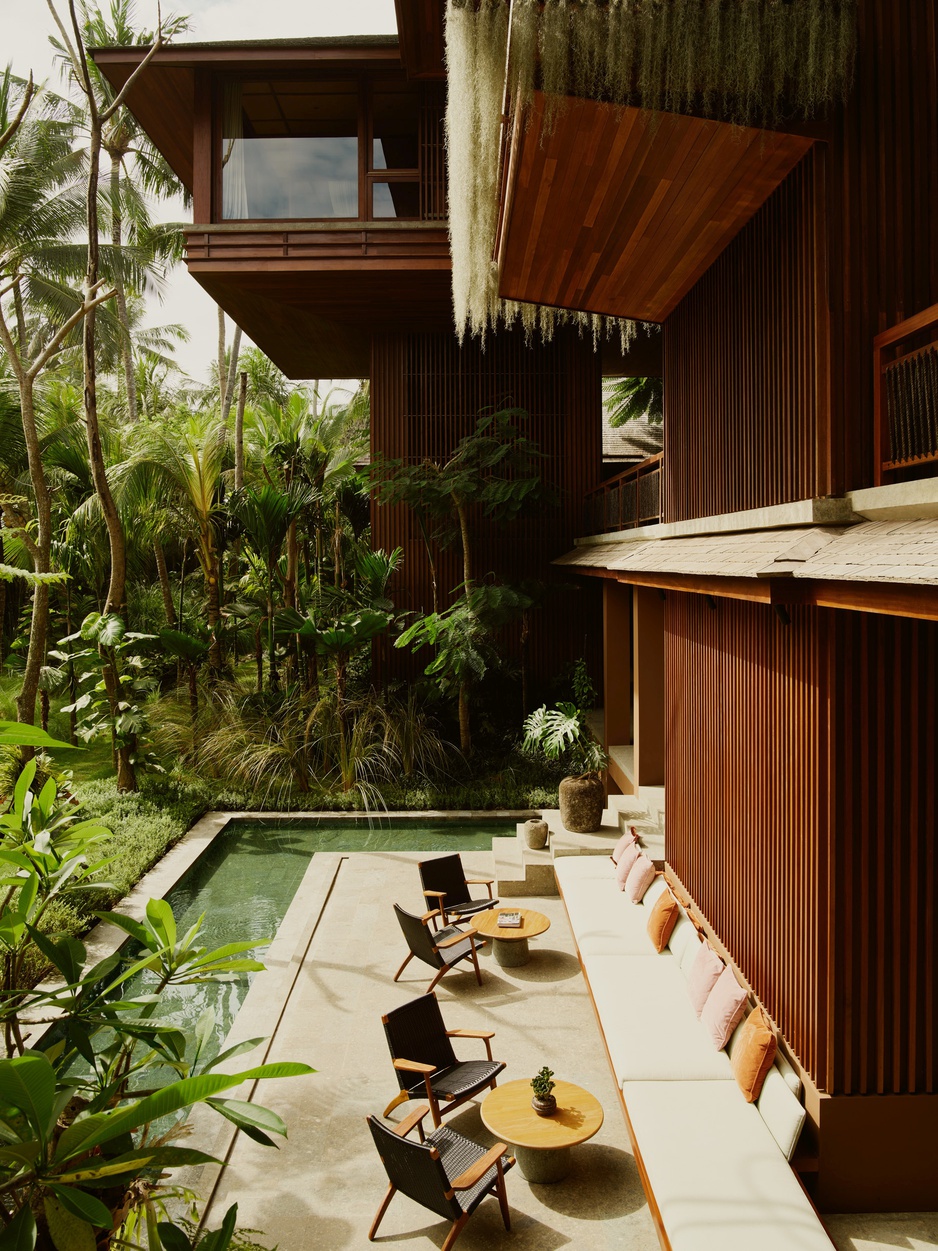
Photo by Robert Rieger
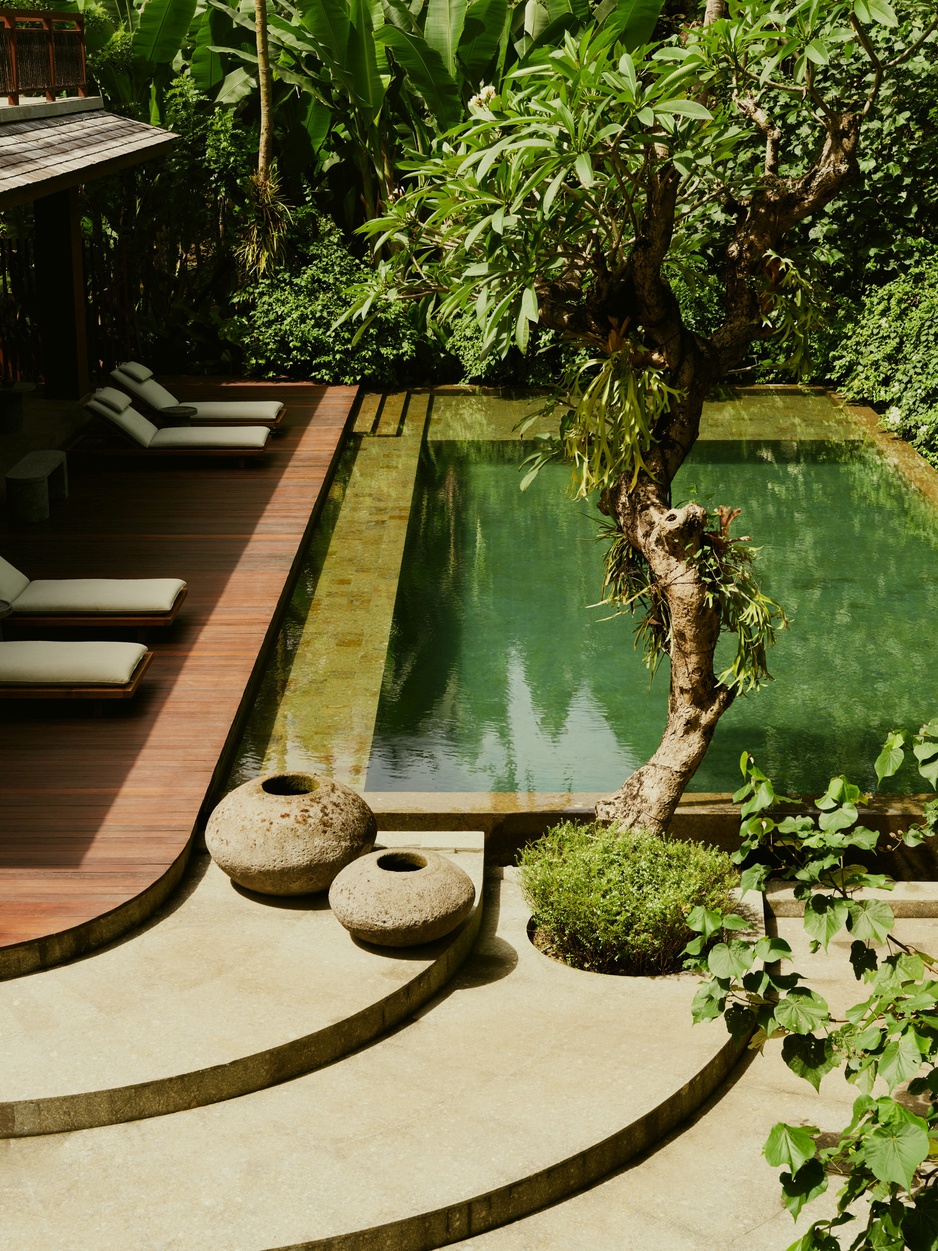
Photo by Robert Rieger
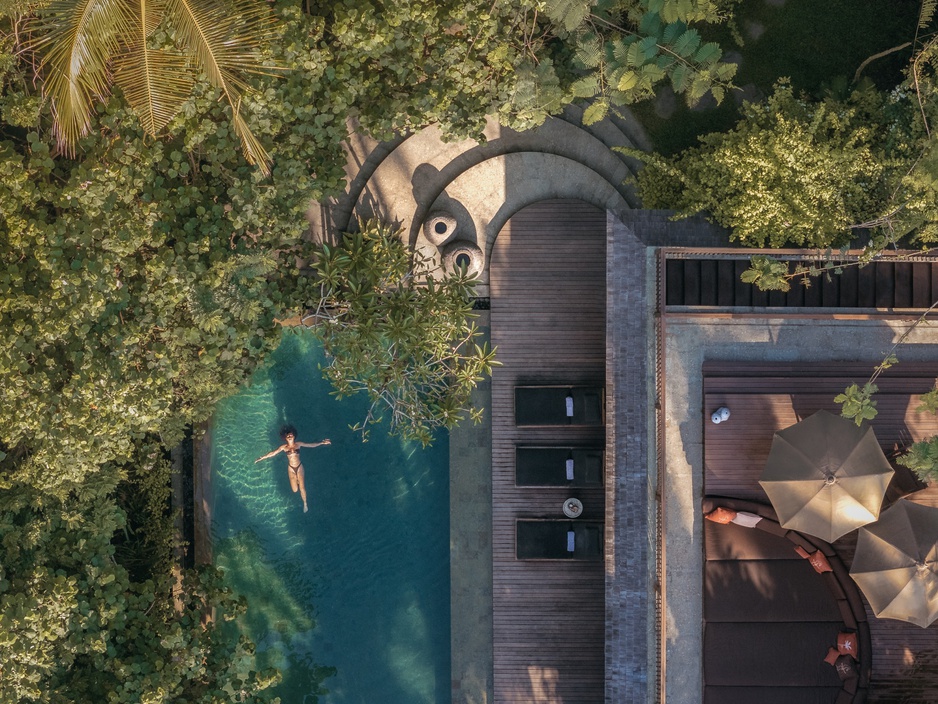
Photo by Jack Johns
Surf's up, stress down
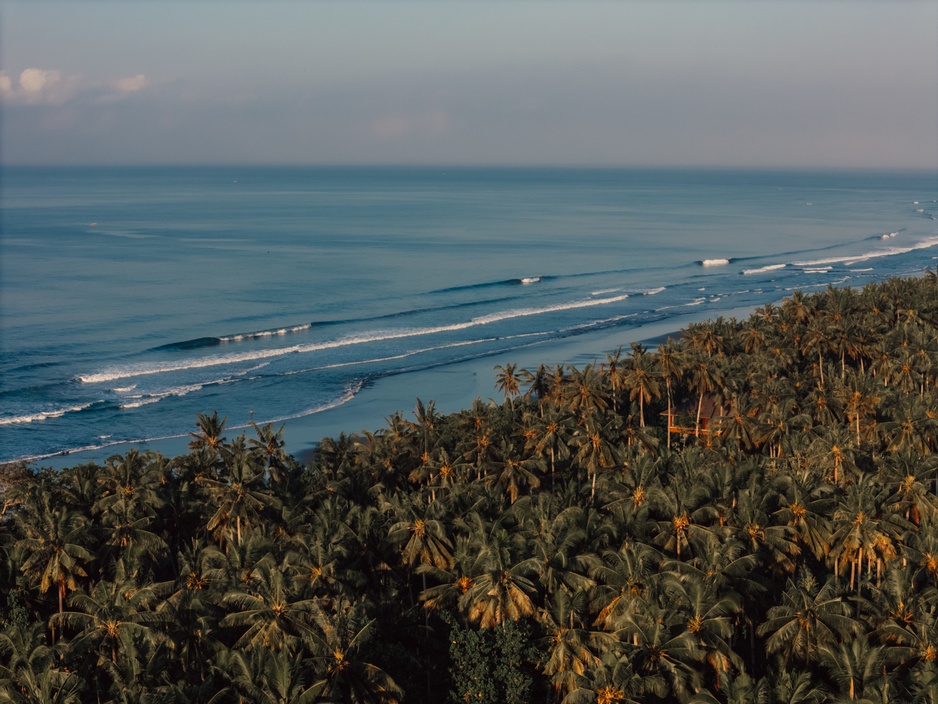
Photo by Jack Johns
The resort sits on a stunning stretch of black volcanic sand beach, largely empty except for the occasional local surfer. Medewi Point, home to Bali's longest wave, is just a 10-minute drive away, but beginners can learn right in front of the hotel with resident instructors.
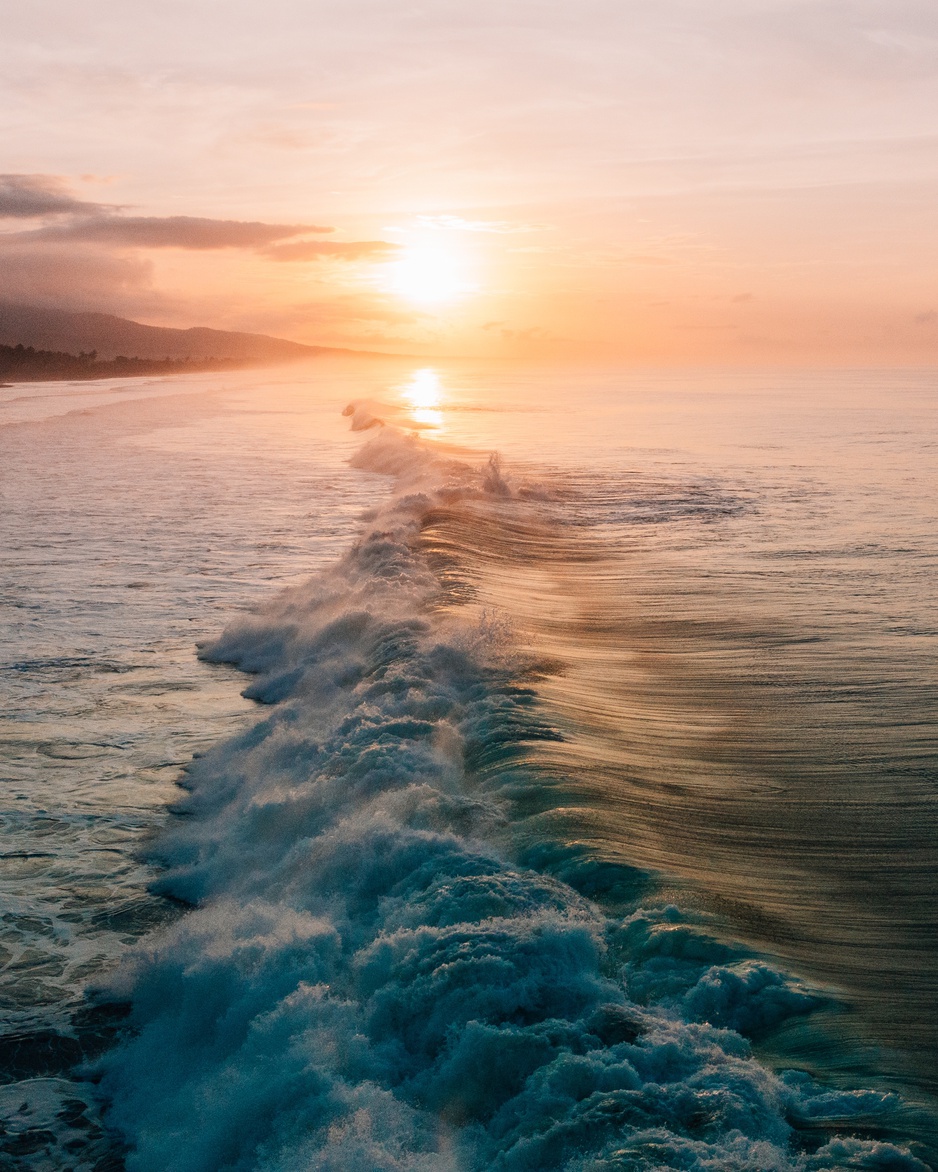
Photo by Jack Johns
Surf lessons are included in your stay, along with use of custom boards made in collaboration with Pyzel.

Photo by Jack Johns
For those preferring dry land, there are bikes and e-scooters for exploring the sleepy village of Pekutatan, jungle hikes to hidden swimming holes, and a spa tucked away in a traditional Javanese wooden structure. The treatment menu draws on local healing traditions - think hot stone massages with river rocks and coconut body scrubs infused with turmeric.
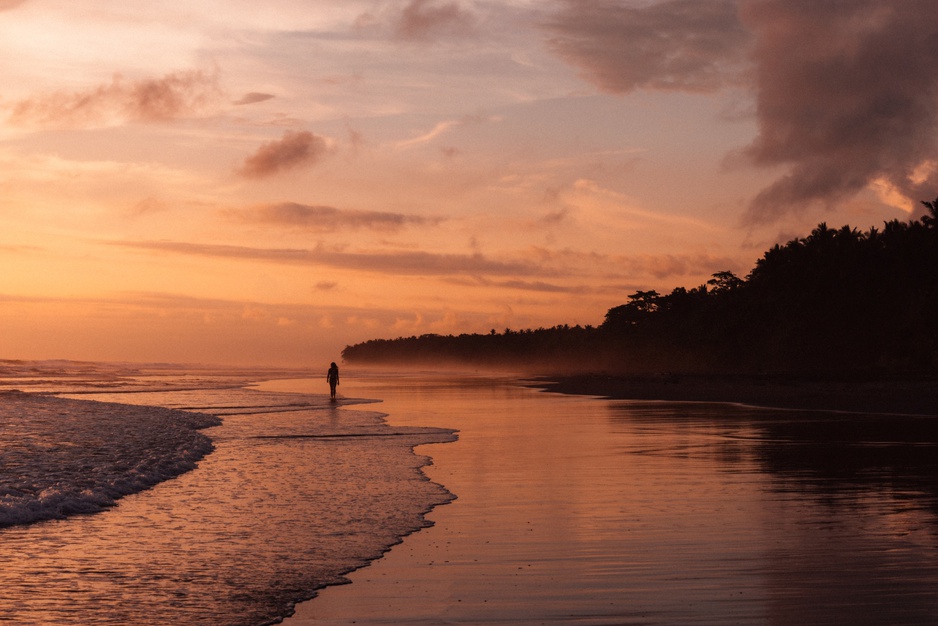
Photo by Jack Johns
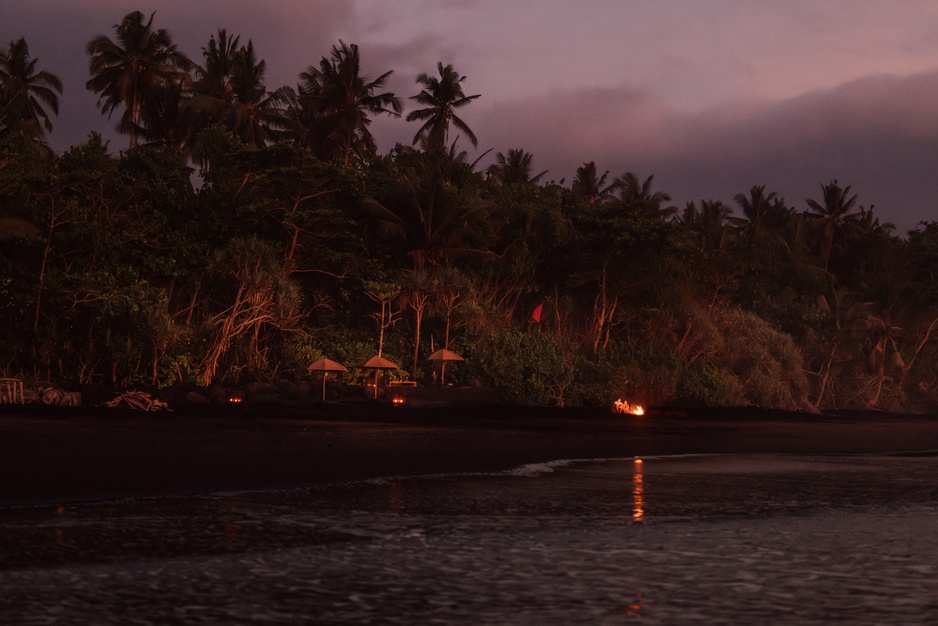
Photo by Jack Johns
Banyar Yeh Kuning, Jl. Ngurah Rai, Pekutatan, Kec. Pekutatan, Kabupaten Jembrana, Bali 82262, Indonesia


